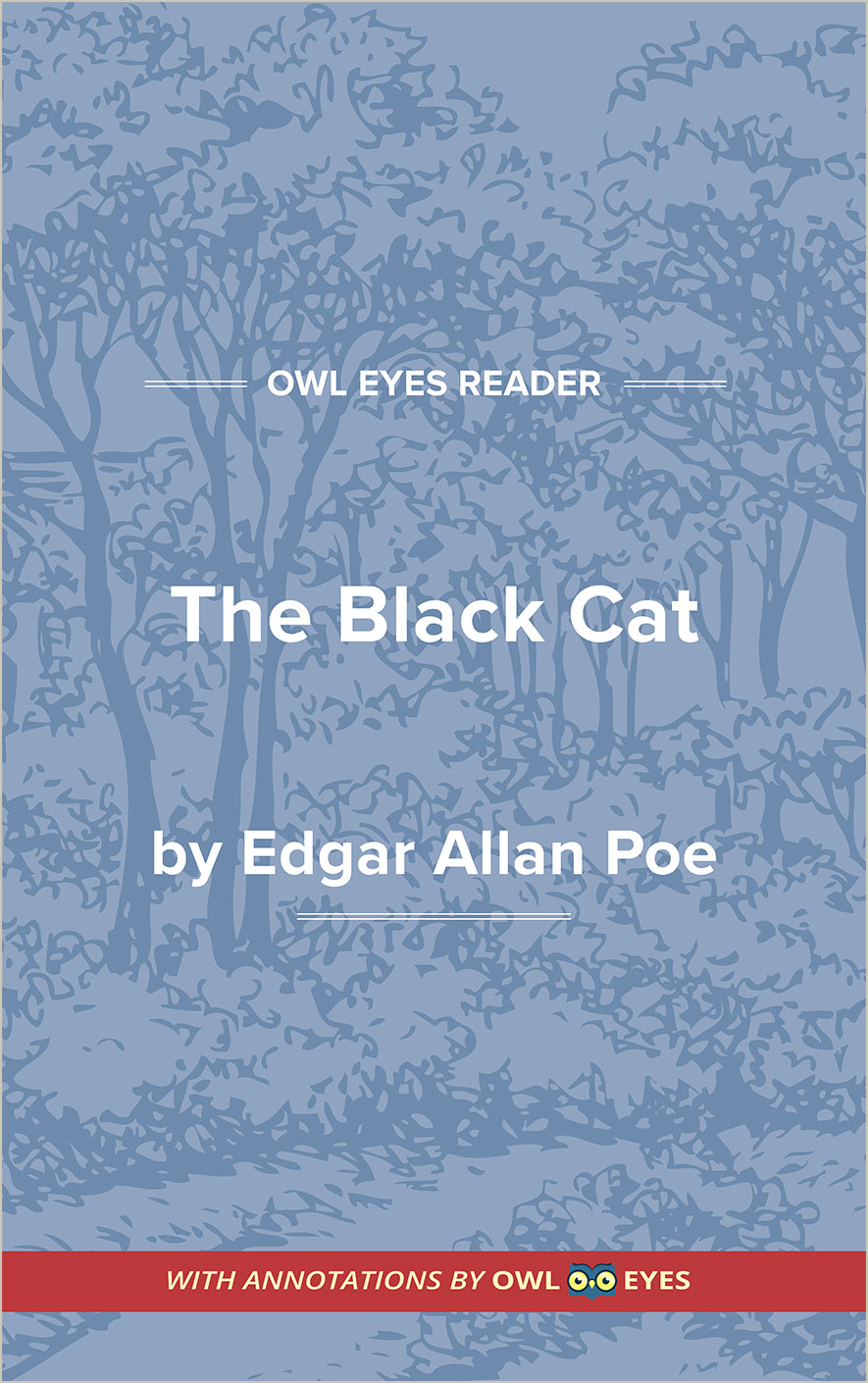Study Guide
Analysis Pages
Summary
Told in the first person by an unreliable narrator (a term designating one who either consciously or unconsciously distorts the truth), the story can be seen to be divided into two parts, each of which builds toward a climactic physical catastrophe: in the first part, the narrator’s mutilation and later murder of a favorite pet, as well as a fire that destroys all he and his wife own; in the second part, the narrator’s ax murder of his wife, followed by his arrest and death sentence.
Opening with both suspense and mystery in his revelation that he wants to “unburden” his soul because he will die the next day, the narrator gives details (with unwitting ironic ramifications) of his early love for animals and marriage to a woman of the same sentiments, who presents him with many pets. Among these is his favorite, a black cat, whose name, Pluto (Greek god of the underworld), foreshadows the narrator’s descent into the murky regions of alcoholism, self-deception, and violence.
When he does later succumb to alcoholism, the narrator shortly thereafter begins maltreating his wife and pets, which gives a double meaning to his term for drinking, “Fiend Intemperance,” referring not only to alcohol abuse but also to intemperate transgression of rational thought and behavior. Eventually the narrator maltreats “even Pluto” (which implies that the cat was valued more than his wife, whom he has maltreated earlier). One night, presumably out of frustration, he seizes the cat, which has been avoiding him. When it bites him, the narrator says he became “possessed” by a “demon” and with his pocket knife cut out one of the cat’s eyes. At first grieved and then irritated by the consequences of his action, the narrator says that he was then “overthrown” by “the spirit of PERVERSENESS” (author’s capitalization), Edgar Allan Poe’s definition of which anticipates by a half century psychologist Sigmund Freud’s concepts of the id (unconscious desires to do all things, even wrongs, for pleasure’s sake) and the death wish (the impulse within all for self-destruction). The “spirit of PERVERSENESS” causes the narrator, even while weeping, to hang Pluto in a neighboring garden. That night a fire destroys his house and all his worldly wealth, and the next day the narrator discovers on the only wall that remains standing the raised gigantic image on its surface of a hanged cat.
His alcoholism continuing, the narrator one night at a disreputable tavern discovers another black cat, which he befriends and adopts (by implication making a substitution out of guilt and remorse), as does his wife. For this double (a frequent motif in Poe’s works), however, the narrator rapidly develops a loathing. First, it has only one eye, which reminds him of his crimes against Pluto. Second, it is too friendly—an ironic inversion of the common complaint that cats are too aloof, as the narrator complained about Pluto. Third,...
(The entire page is 765 words.)
Owl Eyes subscribers get unlimited access to our expert annotations, analyses, and study guides on your favorite texts. Master the classics for less than $5/month!

